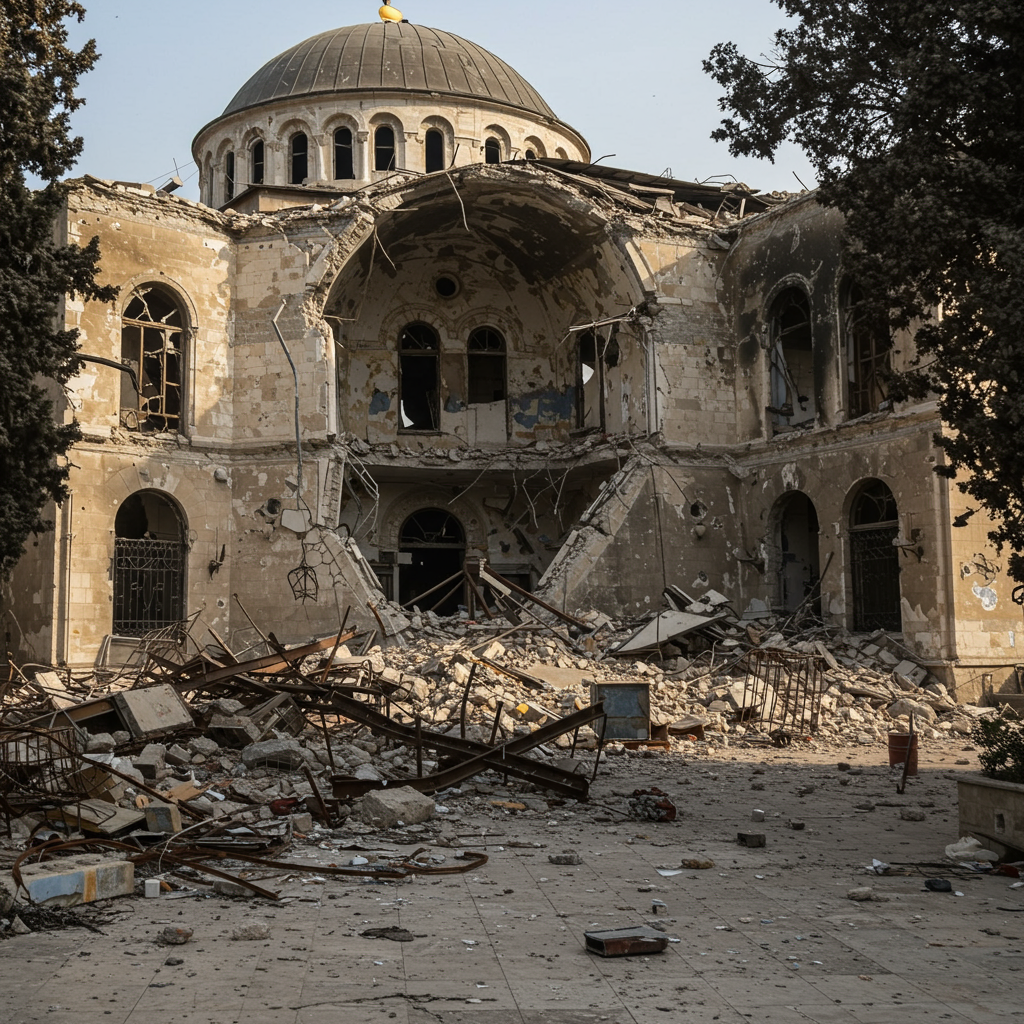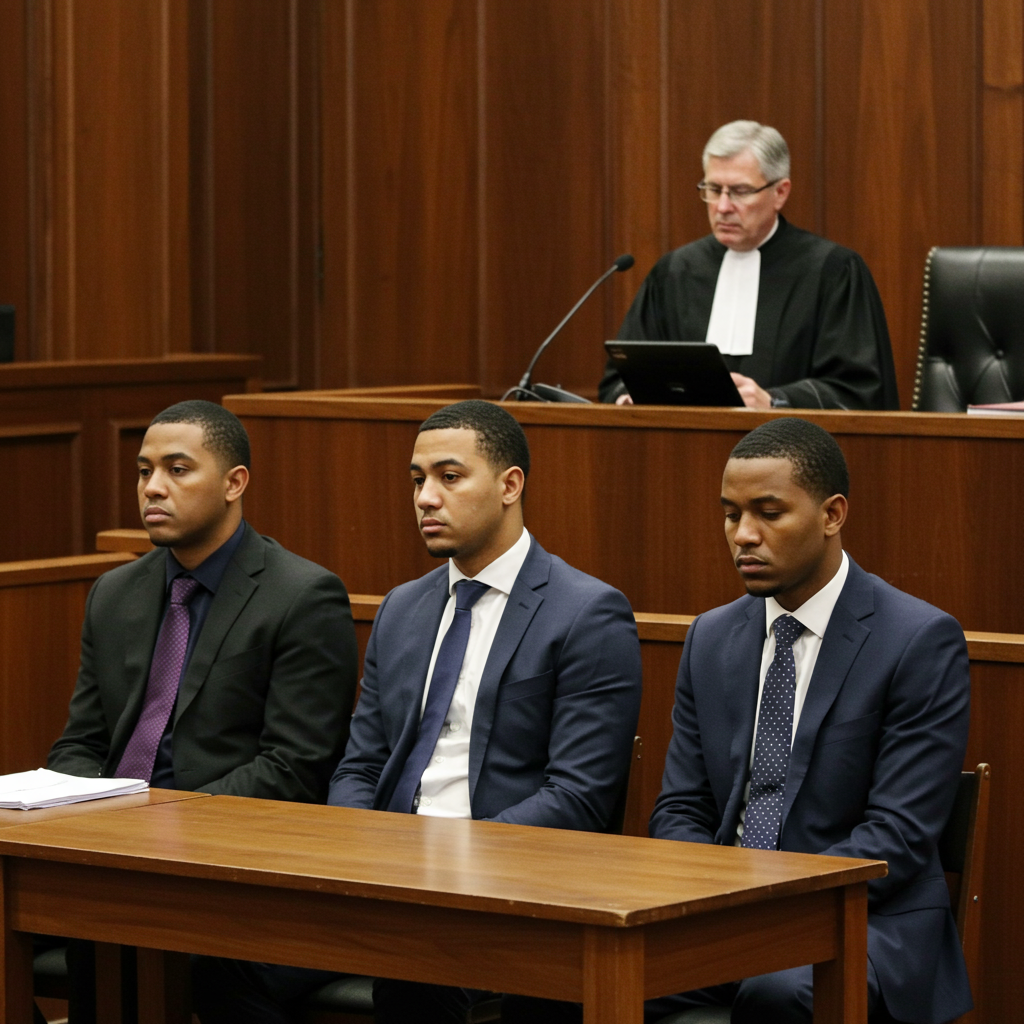Suicide Attack Devastates Damascus Church, Killing at Least 22
A suicide bombing at a Greek Orthodox church in Damascus on Sunday evening killed at least 22 people and wounded 63 others, according to Syrian authorities and state media. The deadly attack, attributed by the Syrian interior ministry to the Islamic State (IS) group, struck the Greek Orthodox Church of the Prophet Elias (also known as Saint Elias or Mar Elias) in the Dweila neighbourhood, located near the eastern Bab Sharqi gate of Damascus’s Old City.
The assault occurred during a church service attended by an estimated 150 to 350 worshippers. According to the interior ministry, a man affiliated with IS first opened fire with a weapon inside the church before detonating an explosive vest. Initial reports from the Greek Orthodox Patriarchate of Antioch suggested the explosion happened at the entrance, causing fatalities both inside the building and in the immediate vicinity.
While Syrian authorities swiftly blamed IS, the jihadist group did not immediately issue a claim of responsibility for the bombing.
Scene of Devastation and Witness Accounts
Witnesses described a chaotic and horrific scene. Lawrence Maamari told AFP news agency that someone entered the church carrying a weapon and began shooting, and people “tried to stop him before he blew himself up.” Another witness, Ziad, who was in a nearby shop, heard gunfire followed by a powerful explosion that sent glass flying and caused fire within the church, scattering debris and wooden benches towards the entrance.
Rawad, speaking to the Associated Press, corroborated the account of the attacker shooting before detonating his vest, adding that the attacker was accompanied by two others who fled the scene. Eyewitnesses Fadi Ghattas and Issam Nasr described seeing a significant number of casualties, with Nasr recounting seeing people “blown to bits” and emphasizing that the worshippers were unarmed.
Photos and videos from inside the church showed the extent of the damage: a heavily damaged altar, pews covered in broken glass and debris, and blood spattered across the walls. Civil defence teams were involved in recovering bodies from the scene, which was left severely damaged. Some local media reports indicated that children were among the casualties.
First Major Attack Since Government Change
This bombing marks the first major operation attributed to IS and the first suicide bombing of its kind in Damascus since the fall of President Bashar al-Assad in December 2024, which ended 13 years of devastating civil war. Assad was replaced by an Islamist-led interim government primarily composed of former leaders from the rebel group Hayat Tahrir al-Sham (HTS).
The attack highlights the significant challenges facing the fledgling interim government led by President Ahmed al-Sharaa, head of HTS. While Al-Sharaa has repeatedly promised to protect religious and ethnic minorities, and the government has been conducting anti-IS raids, Syria has been rocked by two waves of deadly sectarian violence in recent months.
Experts suggest IS is attempting to exploit the security vacuum created by the collapse of the Assad regime to reconstitute itself. Reports indicate the group has been seizing weaponry and ammunition left behind by fleeing regime forces. IS propaganda has also reportedly sought to portray the new Syrian government as having betrayed its Islamist roots, using interactions between Al-Sharaa and international figures like US President Donald Trump as a recruitment tool for disaffected fighters.
IS Threat Lingers Despite Defeat
IS has a long history of targeting Christians and other religious minorities in Syria, including a series of blasts in 2016 near the Shia Muslim Sayyida Zeinab shrine in Damascus that killed more than 70 people.
Although IS lost its territorial caliphate in Syria in 2019, the United Nations has warned that the threat posed by the group and its affiliates remains high. A UN report in February suggested that IS might take advantage of Syria’s political transition to increase attacks and re-establish the country as a hub for recruiting foreign fighters. The report estimated IS retains between 1,500 and 3,000 fighters in Syria and neighbouring Iraq, with key leaders based in Syria, including about 300 fighters concentrated in the central Badia desert, used for planning external operations. Furthermore, over 9,000 IS fighters and around 40,000 people linked to the group (mostly women and children) are held in detention facilities and camps across north-eastern Syria. The presence of sleeper cells remains a concern.
The new Syrian government, while nominally controlling most of the country, struggles to exert full authority on the ground in a fragmented landscape with various militias present. The defence ministry is reportedly working to integrate militias into a national army, while security measures, including checkpoints, are reportedly in place at the entrances to the Christian quarter. Cooperation between the new government and the US-backed, Kurdish-led Syrian Democratic Forces (SDF) in combating IS is noted as growing, though still in its early stages.
Widespread Condemnation
The attack drew strong condemnation from Syrian officials and the international community. The Greek Orthodox Patriarchate of Antioch condemned the “treacherous hand of evil” and called upon Syria’s interim authorities to “assume full responsibility” for violations against churches and ensure the protection of all citizens.
Syrian Interior Minister Anas Khattab labelled the incident a “reprehensible crime” and stated that “These terrorist acts will not stop the efforts of the Syrian state in achieving civil peace.” Minister of Information Hamza al-Mustafa called it a “cowardly act” that contradicts national unity and violates “civic values.” The foreign ministry described it as a “desperate attempt to undermine national coexistence.”
The office of the UN special envoy for Syria, Geir Pedersen, expressed outrage at the “heinous crime,” condemning it in the strongest possible terms and calling for a full investigation. US special envoy Tom Barrack condemned the acts as “cowardice,” stating they have no place in an envisioned future of tolerance in Syria.
Neighbouring countries also voiced condemnation. Turkiye called the attack “treacherous” and an apparent attempt to disrupt efforts towards achieving stability in Syria. Greece condemned the incident and explicitly called on Syrian transitional authorities to hold those involved accountable and implement measures to guarantee the safety of Christian communities and all religious groups. Greece’s Foreign Affairs Minister is scheduled to discuss the attack with EU counterparts.
The bombing occurs as Syria is attempting to recover from nearly 14 years of war and has recently seen the lifting of sanctions by the United States and the European Union following the change in government. Regional security concerns remain heightened, with Greece recently enhancing security measures targeting various interests following the Damascus attack and amidst broader regional tensions.




